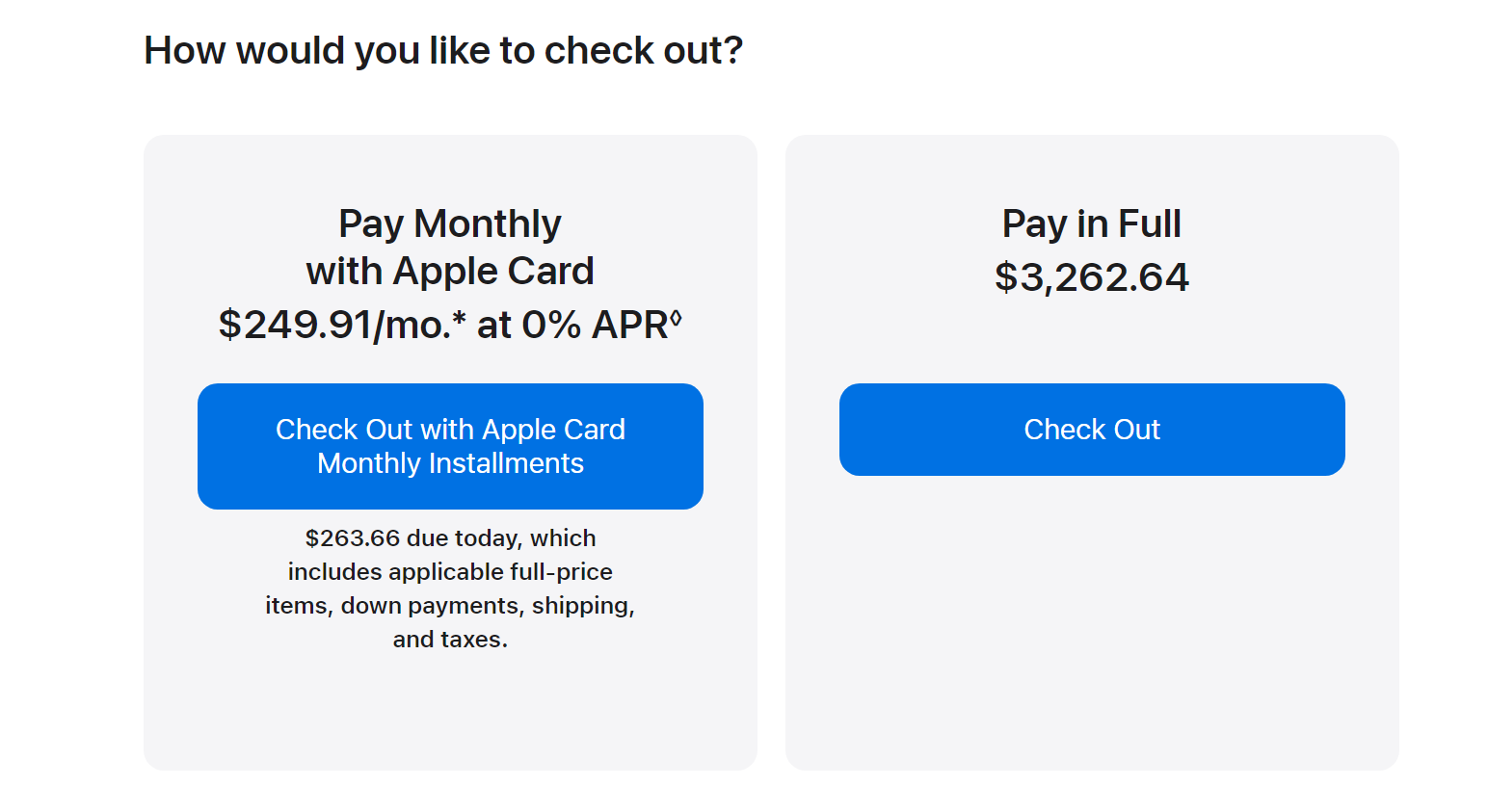
Delivering the perfect customer experience has become paramount to the success of any business. Whether you operate in the SaaS space, are building a DTC brand, or run an eCommerce store, consumers are at the heart of your brand and so must take priority. From their first introduction to your company to the moment of repurchase, every interaction holds the chance to leave (and reinforce) a lasting impression.
This importance necessitates a dedicated role to craft exceptional customer experiences — namely, a chief customer officer (CCO). This position devotes its entire focus to the consumer, ensuring your brand makes a memorable impact that keeps buyers coming back for more.
Hiring a perfect-fit CCO for your brand is thus a critical decision; the right person on your team can profoundly affect your ability to provide outstanding customer satisfaction. In this article, I’ll help you with your search by delving into the roles and responsibilities of a chief customer officer, as well as detailing what qualities to look for during hiring to elevate your brand’s customer experience.
What is a CCO?
A CCO is a key executive who leads customer support and success teams. They focus on fulfilling customer-centric goals to make sure consumers enjoy an exceptional brand experience.
The CCO typically reports directly to the CEO or another high-level executive within the organization. That reporting structure ensures the CCO has the authority and visibility to influence company-wide decisions and effectively advocate for the customer’s best interests.
In the SaaS industry, the CCO oversees the customer experience and sales teams to ensure customer interactions are seamless, personalized, and impactful. They work closely with these teams to develop strategies that boost consumer satisfaction and drive revenue growth throughout the entire organization.
In the eCommerce and DTC industries though, there isn’t always a dedicated sales team, so the CCO’s role becomes even more critical. They serve as customer experts, collaborating with various departments such as marketing, customer support, and retail. By working closely with these teams, the CCO puts consumer needs and preferences at the forefront of decision-making and helps the entire company align to deliver exceptional experiences.
It’s important to note that the role of a CCO differs from that of a chief marketing officer (CMO). While the CMO is tasked with making the customer the core of the marketing process, the CCO’s purview extends beyond marketing; their responsibility spans all levels of the product or service and throughout the whole company to ensure exceptional customer service at every touch point.
The CCO’s roles and responsibilities
The CCO’s primary role is to drive customer happiness throughout the entire buying journey. As such, they’re responsible for developing a strategy that expands revenue growth and customer retention.
Whether you operate in SaaS or eCommerce, buyers follow a similar journey from awareness to retention. However, the activities they engage in throughout the various stages differ depending on the industry.
The CCO is tasked with understanding the touch points that occur in the buyer’s journey. At the evaluation stage for instance, SaaS companies may lean on product demos, guides, reviews, and product comparison tools. Meanwhile, eCommerce companies would employ tactics such as product reviews, features, and offers.
The CCO has to identify gaps and opportunities in the customer experience (CX) at every step on the path to conversion. They then collaborate with various teams to implement stronger strategies with the goal of improving CX within the business.
Now, let’s explore the CCO’s responsibilities at each stage of the customer journey.
Awareness stage
The awareness stage is the initial phase of the customer journey where people are introduced to your brand. As potential buyers become aware of your existence, they form impressions about your products or services. Making a positive, lasting impact at this stage captures their attention and piques interest in your products or services.
The CCO maintains a crucial role in shaping those first impressions, aligning their brand positioning with shopper needs so it’s seen as a solution to their pain points.
CCO and marketing team alignment
In the awareness stage, the CCO works closely with the marketing team to tailor activities to customer pain points and needs. This involves creating a content strategy that boosts brand awareness and resonates with the target audience.
The CCO also leads customer research initiatives to help the marketing team build detailed ideal customer profiles and buyer personas. By understanding the consumer’s mindset, motivations, and preferences, the CCO can make sure the marketing messages are compelling and relevant.
CCO and product team alignment
The CCO might also liaise with the product team to guide new product development alignment with customer needs and expectations. By facilitating effective communication between the product and marketing teams, the CCO can help bridge the gap between customer desires and product offerings. As a result, the brand’s products or services will be designed to meet the evolving needs of the target audience.
CCO and sales team alignment
The CCO also collaborates with the sales team to assess their customer prospecting efforts at the awareness stage. This practice verifies the sales team is focused on the right customers and that initial conversations build rapport and encourage them to take the desired action.
By providing insights from customer research and aligning sales efforts with consumer pain points, the CCO helps improve the effectiveness of customer prospecting across the initial touch points.
CCO’s impact on the awareness stage
By actively engaging with the marketing, product, and sales teams at the awareness stage, the CCO gives the brand’s strategy a customer-centric focus, which establishes a strong foundation for customer relationships.
The CCO’s expertise and insights contribute to the development of tailored marketing content, consumer-focused product development, and engaging sales interactions, all of which collectively shape a positive and impactful first impression of the brand.
One example of a company that excels in this area is Glossier, a beauty brand that leans heavily on customer-centric strategies.
From product ideation to marketing, almost everything Glossier does is co-created with the customer. New items are even developed off of customer feedback and discussions. The result of giving customers a voice? It makes people feel valued and involved, putting them at the heart of the story and encouraging repeat purchases.

Glossier’s marketing campaigns focus on creating a community-driven experience, engaging shoppers through user-generated content, and sharing authentic stories that resonate with their target audience. Their consumer-centric approach highlights the impact of prioritizing customer needs and aligning marketing, product, and sales efforts.
Consideration stage
During the consideration stage of the customer journey, prospects evaluate whether a product or service is the right fit for their needs. They delve deeper into product research by comparing options and weighing the benefits and drawbacks of different solutions before converting.
At this stage, the CCO takes charge of assessing the impact of sales and marketing efforts on converting prospects into customers.
CCO and marketing team alignment
Working closely with the marketing team, the CCO reviews various marketing elements such as landing pages, lead magnets, and contact forms to ensure they’re optimized for capturing and engaging potential customers. By analyzing the performance of these assets, the CCO can provide insights and recommendations to enhance their effectiveness in nurturing leads and facilitating conversions.
CCO and sales team alignment
Additionally, the CCO cooperates with the sales team to lead customer prospecting conversations. They make sure the team members are trained to communicate the value proposition effectively and address buyer concerns.
The CCO also analyzes the sales pipeline to identify potential bottlenecks or areas for improvement. At the same time, the CCO aligns sales and marketing efforts to ensure marketing activities generate quality leads who seamlessly transition into the sales funnel and result in higher conversion rates.
Moreover, the CCO develops a sales qualification process to identify and prioritize right-fit prospects. They establish clear criteria and guidelines so the sales team focuses on leads with the highest potential for conversion and long-term satisfaction. This targeted approach optimizes resource allocation and increases the likelihood of successful customer acquisition.
CCO’s impact on the consideration stage
The CCO aligns sales and marketing efforts at the consideration stage by evaluating the decision-making journey and developing a robust sales qualification process. This holistic take gives prospects everything they need to make informed decisions, leading to increased conversion rates and greater consumer satisfaction.
HubSpot, the inbound marketing and sales software provider, is a great example of a company that empowers their CCO to develop a customer-driven strategy aligned across the sales, marketing, service, and revenue operations teams.
When announcing the appointment of Rob Giglio as HubSpot’s CCO, they shared that Rob would be responsible for “leading all teams tasked with driving strategic projects that advance HubSpot’s go-to-market motion and creating a streamlined experience across the company’s platform.”
At the consideration stage, HubSpot’s sales and marketing activity is designed to ease the transition from lead generation to customer acquisition.

For example, HubSpot understands that picking software for your business is a decision that requires serious consideration. To ease the selection process, they crafted product and tool comparison guides to give an overview of the best features and prices. They also developed a Customer Advisory Board to place consumer feedback and experiences at the center of every stage of the user journey.
Purchase stage
The purchase stage is the point in the buyer journey where individuals transition from prospects to customers. Here, the CCO is tasked with developing a seamless buying experience that leaves customers feeling valued and excited. The CCO collaborates with various teams to optimize checkout, close more sales, improve products, and build a top-notch post-purchase experience.
CCO and marketing team alignment
At the purchase stage, the CCO and the marketing team jointly design a user-friendly and trustworthy checkout process so customers can complete their purchases easily. That can entail simplifying forms, streamlining payment options, and enhancing security measures.
By assessing the checkout process, the CCO can also uncover any barriers to conversions or areas for improvement.
CCO and sales team alignment
The CCO collaborates with the sales team to develop an effective sales closure process during the purchase stage of the journey. That involves creating a personalized and attentive sales strategy that makes customers feel valued and excited about their decision.
The CCO examines the reasons why prospects choose not to buy to gather insights and improve the purchase rate. Understanding customer concerns and objections allows the CCO to build solutions to these issues and increase conversions.
CCO and product team alignment
The CCO also evaluates customer feedback on the product and conversion process during the purchase stage. Adopting a feedback-driven approach allows the CCO to collaborate with the product team and refine the product based on consumer needs and preferences. The product team can also optimize the conversion process for increased adoption and an exceptional customer experience.
The CCO takes responsibility for reviewing the post-purchase process to guarantee safe and timely product delivery. They liaise with the product and operations teams to align the delivery experience with the brand’s standards of excellence. That may entail overseeing the packaging and unboxing experience to create a memorable moment for customers.
Focusing on every aspect of the purchase journey enables the CCO to provide customers a positive end-to-end experience with the brand.
CCO’s impact on the purchase stage
By collaborating with various departments, evaluating customer feedback, and reviewing every stage of product purchases, the CCO can enhance the purchase stage of the buyer journey. These actions produce an exceptional sales closure and a positive customer experience.
Apple is a prime example of a company whose product delivery experience wows shoppers. They carefully created a Paper and Packaging Strategy to make product packaging “more uniform, reduce environmental impact, and create a better experience for the customer.”

The Apple website also makes it easy for customers to purchase products online with seamless navigation and clear calls to action throughout the site that encourage people to buy. The checkout page gives shoppers the choice either to pay in full or in monthly installments to minimize friction caused by pricing.
Retention stage
The retention stage of the customer journey focuses on nurturing and maintaining strong, long-term relationships with customers to drive repeat purchases. At this point, the CCO is responsible for leading a cross-departmental product education strategy to make sure consumers have all the necessary information about the product or service.
Additionally, the strategy is intended to equip all teams to address customer inquiries and clearly explain the features, benefits, and value of the offering. By collaborating with product, sales, marketing, and support teams, the CCO ensures consistent messaging and a unified approach to delivering product knowledge and guidance to shoppers. This then empowers them to maximize product capabilities, which increases their satisfaction and reduces churn.
The CCO also fosters customer loyalty by focusing on repurchasing strategies. They work closely with the marketing team to develop effective remarketing campaigns, targeting shoppers who’ve previously shown an interest or made purchases. The CCO leverages customer data and segmentation to help build remarketing campaigns that entice buyers to revisit the brand and make additional purchases.
An experienced CCO knows how to implement loyalty programs designed to reward customers for their longevity and repeat business. Programs could include points systems, exclusive offers, personalized recommendations, or VIP access to special events.
Excellent customer service is also crucial for customer retention, and the CCO takes charge of implementing an effective strategy for it. A well-developed customer support strategy will address consumer queries and concerns in a fast and efficient manner. That entails establishing streamlined communication channels, developing self-service resources, and training customer support teams.
CCO’s impact on the retention stage
By recognizing and rewarding customer loyalty, the CCO strengthens the emotional connection between the customer and the brand, reinforcing their desire to remain engaged and loyal over time.
The investment company Acorns, for example, gives customers access to the Acorns Earn rewards program. This loyalty program rewards users with cash back when they shop at affiliated brands and automatically invest the funds into their Acorns account.

Through a comprehensive product education strategy, implementing effective remarketing campaigns and loyalty programs, and ensuring exceptional customer support, the CCO expands consumer loyalty and retention. Their efforts result in increased repurchases, extended customer lifetime value, and a positive brand perception that drives sustainable growth.
What to Look for When Hiring a Chief Customer Officer
Certain essential qualities are imperative when hiring a CCO that fits your brand. These skills will ensure the employee is capable of elevating the customer experience and driving business growth. So, hunt for the following key qualities during your search.
1) Proactive and forward-thinking
A great CCO should anticipate customer needs, challenges, and changes ahead of time. A proactive CCO demonstrates foresight and the ability to stay ahead of the curve, ensuring your brand remains responsive to and supportive of evolving consumer expectations.
Look for candidates who:
- Understand the importance of customer research and insights
- Can identify consumer pain points before they become significant issues
- Possess change management skills and the ability to adapt to evolving shopper needs
- Are committed to continuous learning and staying up to date on industry trends
- Excel in problem-solving and strategic thinking
During the hiring process, consider asking behavioral-based interview questions to assess the candidate’s proactive qualities. Encourage them to provide specific examples of situations where they demonstrated proactivity in anticipating and addressing customer needs.
2) Able to unify cross-functional teams
The CCO needs to bring cross-functional teams together and ensure synergetic collaboration between sales, marketing, product, and support departments, among others. They guide these teams’ cooperation so they don’t operate in silos.
To unify cross-functional teams, your candidate should possess:
- Collaboration and relationship-building skills
- Cross-functional project management skills
- Communication and influencing abilities
- Understanding of each team’s role
- Change management and organizational alignment skills
Conduct cross-functional interviews during the hiring process to gauge how well the candidate interacts with different team members. This gauges their ability to bridge gaps, build rapport, and foster collaboration.
3) Strengthens customer relationships
The ideal CCO candidate should understand the importance of strengthening customer relationships and advocating for the consumer in all departments and company activities.
Each department is engaged in its core roles: Sales are busy closing deals, product teams are focused on building items, and support teams give their attention to resolving customer queries. Because of these multifarious obligations, it’s up to your CCO to serve as the voice of the consumer and interject into each department’s strategies. That contribution ensures all company activity strengthens the customer relationship.
Look for candidates with:
- A strong, consumer-centric mindset
- Experience in gathering and leveraging customer insights to understand their preferences and expectations
- Skills in cross-departmental collaboration and communication
- An ability to influence and advocate for the customer’s needs within the organization
- Experience in developing and implementing consumer relationship management strategies
- The ability to measure and track customer-related metrics and key performance indicators (KPIs)
- Strong emotional intelligence to understand and empathize with shopper needs and emotions
In addition to evaluating the candidate’s skills and experience, consider seeking references from previous colleagues or clients who can provide an honest estimation of their ability to strengthen customer relationships. These references can shed light on the candidate’s effectiveness in advocating for the consumer and driving customer-centric initiatives.
4) Continually improving business processes
A competent CCO should be highly organized and capable of improving overall business processes. They need to understand how individual department activities feed into the wider business performance. The CCO’s duties are intended to streamline business processes at every level.
Look for candidates who:
- Have a track record of driving operational excellence and process improvement
- Possess a deep understanding of the customer journey and know ways to optimize it for a seamless experience
- Have the ability to synthesize data and analytics to refine operations
- Are capable of collaborating with cross-functional teams to identify opportunities for improvement
- Possess knowledge of and familiarity with technology and systems to enhance operational efficiency
- Maintain a mindset of continuous improvement
- Display problem-solving skills
Ask your chosen candidates to provide specific examples of procedural improvement initiatives they led in their previous roles. Request case studies or project summaries that highlight their ability to strengthen business processes and the tangible results achieved. Seeking references from their previous colleagues or superiors who can vouch for their expertise in process improvement can also provide valuable insights that round out your estimation of the candidate.
5) Data driven
A data-driven attitude is essential for a CCO to be successful. When hiring this role for your team, you need to make sure the CCO holds a strategic mind and bases their decisions on data analysis.
Look for candidates who have:
- Strong analytical skills and can effectively interpret and analyze data
- A customer-centric data focus
- Experience in establishing and tracking KPIs and metrics relevant to customer experience and satisfaction
- The ability to integrate data from various sources and transform it into actionable insights
- Familiarity with experimentation and A/B testing
- Strategic decision-making skills
- A passion for continuous learning and staying updated on emerging trends and technologies in data analysis
Inquire into candidates’ experiences leveraging data to inform decisions and enhance the consumer experience in those roles. You could provide potential applicants with a fictitious situation or data collection and ask them to describe how they would examine and interpret the information to guide strategic choices.
Wrapping up — Elevate your customer experience with a chief customer officer
Hiring a chief customer officer can be a game-changer for your brand. By prioritizing the customer experience and working with a CCO who embodies the qualities discussed above, you’ll gain a competitive edge while increasing customer satisfaction, retention, and revenue growth.
A skilled and experienced CCO has the power to transform your consumer strategy and elevate your company’s performance. Your chosen candidate should be able to anticipate buyer needs, unify teams, strengthen customer relationships, improve business processes, and make data-driven decisions. Their impact extends beyond the customer journey to drive revenue growth and foster long-term success.
Invest in a talented CCO and set your brand on the path to sustained success and customer-centric expansion.